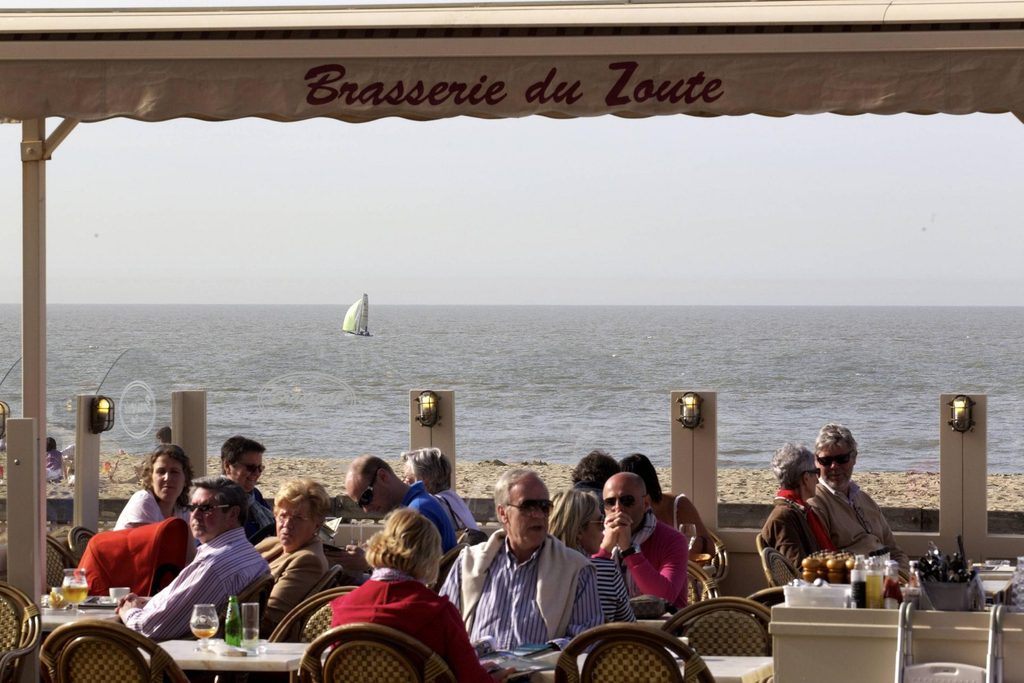Belgian sea air contains strikingly high concentrations of PFAS (also known as "forever chemicals"), possibly even more than in the city, a first exploratory study by the Flemish research institute VITO shows.
VITO researchers measured PFAS concentrations in the air at two locations in the Belgian coastal municipality of Knokke-Heist, and compared that air with the city air of Borgerhout (Antwerp) and the rural air in Dessel. By the sea, the values were strikingly higher than in the other two areas.
"There are no dangerous concentrations yet, but I am concerned," Jacob De Boer, Professor of Environmental Chemistry and Toxicology at the Free University of Amsterdam, said on Flemish radio on Wednesday morning.
As it concerns an exploratory study on only two measurement points, VITO is also calling for more and deeper research before real conclusions can be drawn. Still, De Boer said the results are striking if not entirely surprising.
PFAS in sea foam
"In the soil of the coast of Norway, higher values of PFAS have been measured. In the dunes along the Dutch coast as well, for example on the Wadden Islands, PFAS values are higher than inland, even though there would not actually be a PFAS source there," he said, adding that a possible explanation can be found in sea foam.
Experiments have been done to see how to remove PFAS from wastewater which showed that if you bubble air through water, PFAS is on top within a few minutes. "We suspect that this process also takes place at sea. The wind then blows PFAS towards the coast," he added.
A previous short study by VITO also showed high levels of PFAS in sea foam, said De Boer. "In Australia, too, they measured higher values in it."
However, he added that there are no really dangerous concentrations yet. "We are not talking about health problems yet. You can walk by the sea. Do not let people think too quickly that it is unhealthy."
Related News
- Over 1,500 Flemish families believed to live on PFAS contaminated land
- PFAS pollution: Large-scale blood tests for households near 3M plant
- Presence of PFAS observed at several sites in Brussels Region
Still, De Boer is concerned, as he said these recent findings are a signal that something needs to be done immediately. "PFAS is a substance that does not break down, it just sticks around. The more you produce, the more is added to the environment. So at some point, it does start being too much."
Therefore, he is advocating a production stop, as PFAS is widespread worldwide. De Boer is working for the United Nations on a monitoring programme that looks at PFAS concentrations in all kinds of areas. "We also see it in small islands in the Pacific Ocean."
The European Union wants to ban the production and use of some 10,000 different chemicals, but the chemical industry opposes this as they argue there are still too few alternatives. "I hope the European Commission will stand firm, because it is of such great importance that more PFAS chemicals are not added to the environment. It is crazy that we are now wondering whether sea air is still healthy," De Boer said.
What are PFAS?
Also known as "forever chemicals," PFAS (poly- and perfluoroalkyl substances) are chemicals with little or no natural degradability, meaning they remain in the environment and in human bodies.
They are synthetic substances produced in the chemical industry and are not naturally present in the environment. The substances are used to, among other things, waterproof textiles or coat pans with Teflon, and have been linked in recent studies to possible health risks, such as an increased risk of cancer.
The PFAS "family" of chemicals – but PFOS in particular – has been well-known in Belgium since the 3M pollution scandal in Zwijndrecht.

